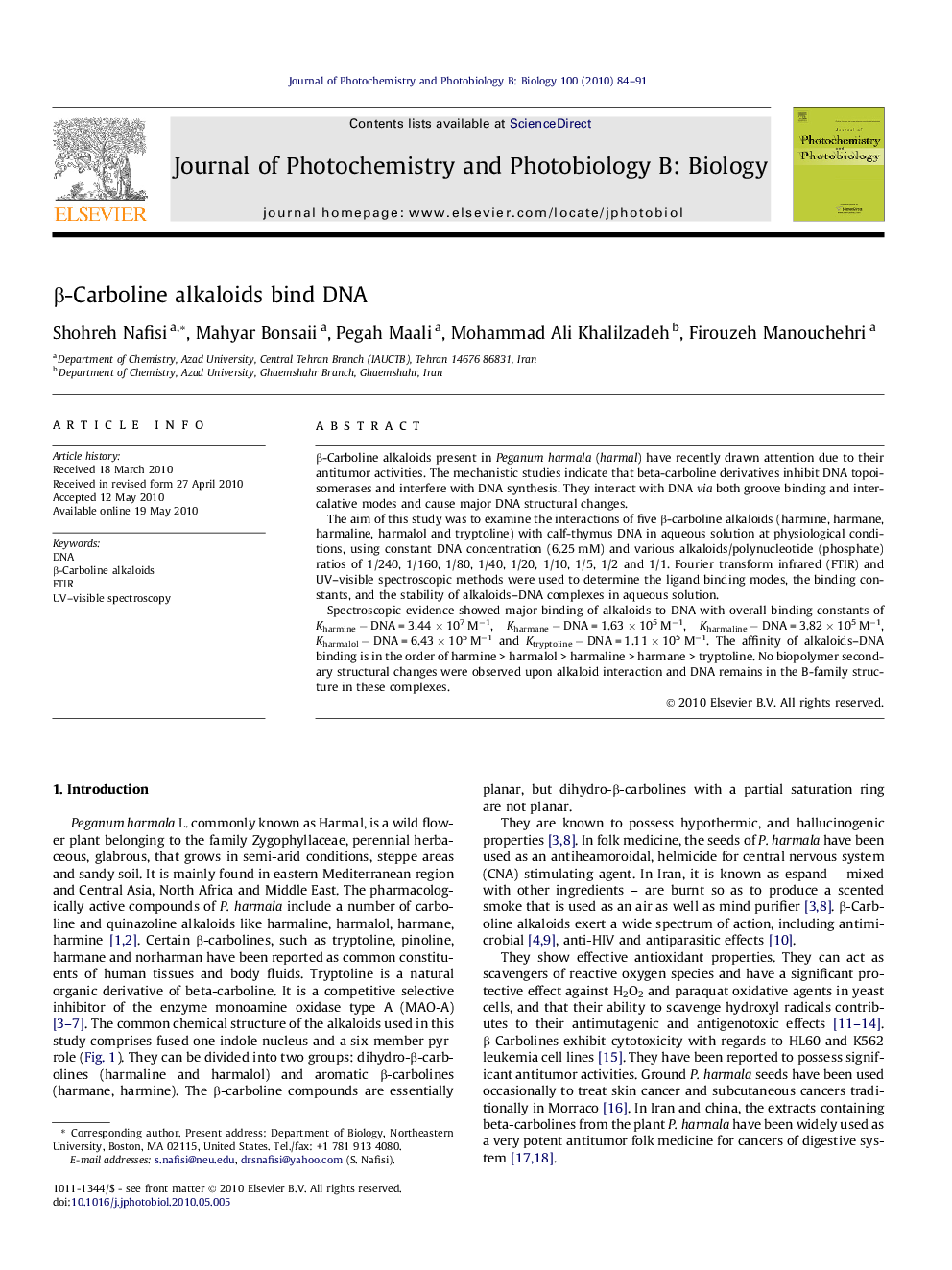| Article ID | Journal | Published Year | Pages | File Type |
|---|---|---|---|---|
| 31046 | Journal of Photochemistry and Photobiology B: Biology | 2010 | 8 Pages |
β-Carboline alkaloids present in Peganum harmala (harmal) have recently drawn attention due to their antitumor activities. The mechanistic studies indicate that beta-carboline derivatives inhibit DNA topoisomerases and interfere with DNA synthesis. They interact with DNA via both groove binding and intercalative modes and cause major DNA structural changes.The aim of this study was to examine the interactions of five β-carboline alkaloids (harmine, harmane, harmaline, harmalol and tryptoline) with calf-thymus DNA in aqueous solution at physiological conditions, using constant DNA concentration (6.25 mM) and various alkaloids/polynucleotide (phosphate) ratios of 1/240, 1/160, 1/80, 1/40, 1/20, 1/10, 1/5, 1/2 and 1/1. Fourier transform infrared (FTIR) and UV–visible spectroscopic methods were used to determine the ligand binding modes, the binding constants, and the stability of alkaloids–DNA complexes in aqueous solution.Spectroscopic evidence showed major binding of alkaloids to DNA with overall binding constants of Kharmine − DNA = 3.44 × 107 M−1, Kharmane − DNA = 1.63 × 105 M−1, Kharmaline − DNA = 3.82 × 105 M−1, Kharmalol − DNA = 6.43 × 105 M−1 and Ktryptoline − DNA = 1.11 × 105 M−1. The affinity of alkaloids–DNA binding is in the order of harmine > harmalol > harmaline > harmane > tryptoline. No biopolymer secondary structural changes were observed upon alkaloid interaction and DNA remains in the B-family structure in these complexes.
